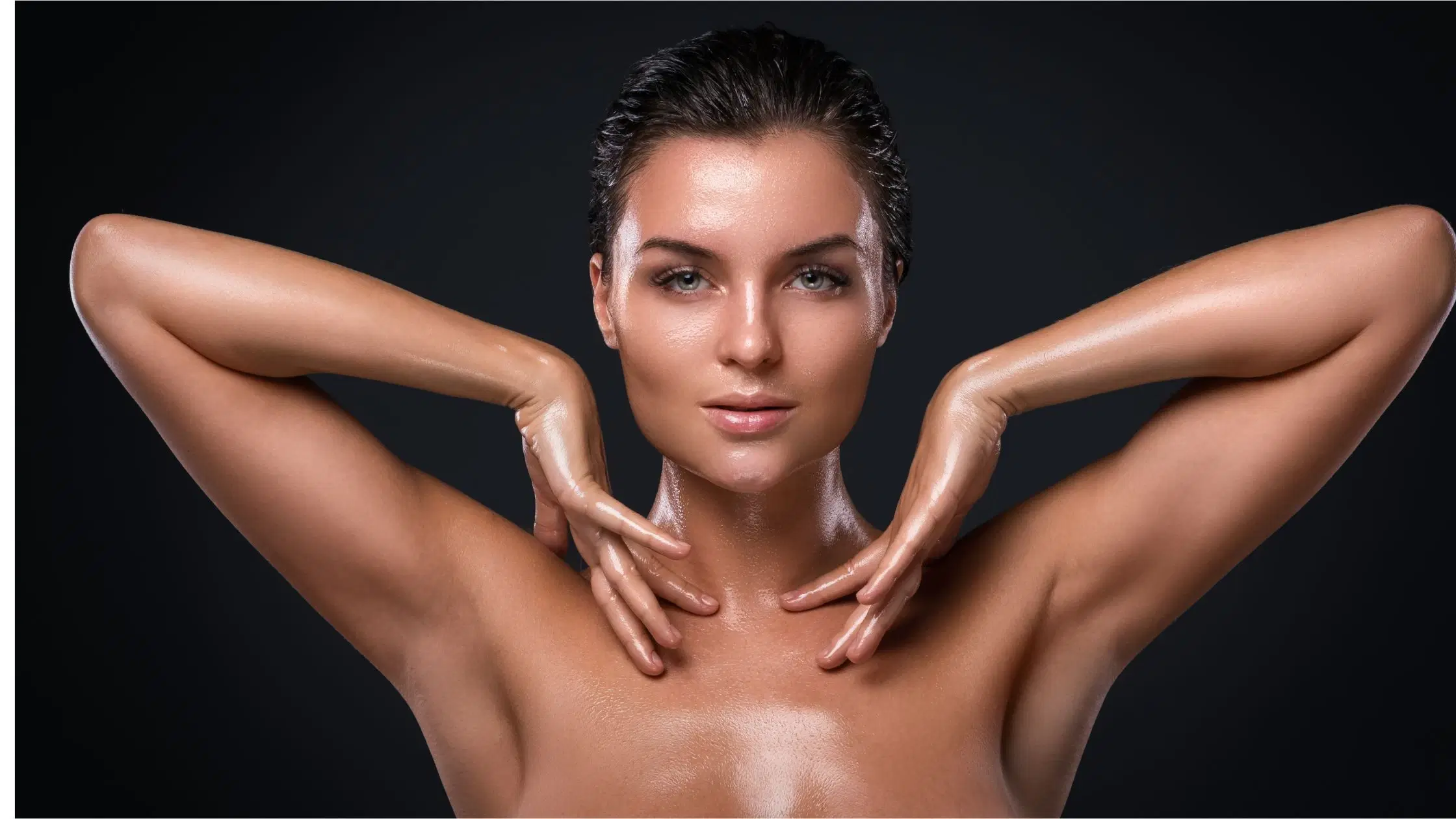
Beauty & Skincare
•04 min read
-9872eb55-9af0-4022-8644-bd8f05e8333e.png&w=3840&q=75)
Radiant skin and glowing complexion are terms that often pop up in beauty conversations. While they might seem similar, each represents a distinct quality of healthy skin. This blog explores how each can contribute to your overall skin health, helps you understand their differences, and offers clear skin tips and techniques to enhance your natural skincare regimen.
Radiant skin is known for its bright, luminous quality that reflects light evenly across a smooth, even surface. This look is usually the result of regular skin nourishment, proper hydration, and a well-curated anti-aging skincare routine. Radiance is a reflection of vitality, enhanced by collagen production and skin rejuvenation practices that support a bright skin tone.
Key attributes: bright skin tone, smooth texture, and hydration.
Main factors: skin nourishment, collagen synthesis, and anti-aging skincare.
A glowing complexion stands out with its naturally dewy finish and fresh appearance. It is often linked to optimal skin hydration levels and a balanced distribution of natural skin oils. Glow reflects youthfulness and vibrancy, indicating that the skin retains moisture well and benefits from regular clear skin tips and natural skincare practices.
Key attributes: natural dewy sheen, even tone, and moisture balance.
Main factors: balanced oil levels, skin hydration, and gentle skincare routines.
The radiance of your skin is fundamentally about how effectively it reflects light. A smooth texture and bright skin tone are achieved by encouraging collagen production and relying on key ingredients such as vitamin C, niacinamide, and retinol. Proper anti-aging skincare helps repair skin damage caused by external factors like UV exposure and pollution, ensuring your skin remains resilient and vibrant.
Anti-aging essentials such as retinol and anti-oxidant-rich products fortify skin structure.
External influences, including stress and environmental factors, require targeted skincare to maintain radiance.
For a glowing complexion, hydration plays a crucial role. The skin's ability to lock in moisture and produce a soft, dewy finish largely depends on moisturizing agents like hyaluronic acid and ceramides. Balanced skin hydration not only enhances the natural sheen but also supports overall skin health. Additionally, lifestyle factors such as a balanced diet, adequate sleep, and stress management are essential to maintain those natural skin oils and achieve consistent glow.
-5ba1f1f6-995b-4617-a1ff-43890351cff7.png&w=3840&q=75)
Hydration key ingredients: hyaluronic acid, ceramides, and consistent water intake.
Impactful daily habits include proper diet and stress management to support skin hydration.
Achieving radiant skin involves a combination of regular exfoliation, brightening treatments, and targeted nourishment. An effective recommended routine includes removing dead skin cells to reveal a fresher layer of skin and using products enriched with vitamin C, AHAs, and niacinamide that promote skin rejuvenation. This routine not only ensures a smooth skin texture but also supports collagen production for a vibrant, bright skin tone.
Exfoliation: Gently remove dead skin cells to reveal a smoother base.
Brightening treatments: Incorporate vitamin C and AHAs to revitalize your skin.
Nourishment: Use collagen-boosting products to help diminish the signs of aging.
Creating a glowing complexion focuses on deeply hydrating the skin while maintaining a balance of natural oils. Start with moisturizers containing hydrating ingredients like hyaluronic acid and opt for gentle formulations that preserve your skin’s natural barrier. Complement these steps with lifestyle adjustments such as drinking sufficient water, enjoying antioxidant-rich foods, and managing stress levels to support overall healthy skin.
Moisturization: Choose products with hyaluronic acid to lock in hydration.
Gentle care: Avoid harsh chemicals that disrupt skin oil balance.
Healthy habits: Ensure proper water intake and manage stress effectively.
Radiant skin emphasizes a strong, bright reflection and smooth texture, while glowing skin is noted for its natural dewy appearance and balanced moisture levels. Both aspects signal that your skin is in good health; radiant skin focuses on overall brightness and firmness, whereas a glowing complexion emphasizes hydration and a subtle sheen. Integrating clear skin tips into your routine can help you balance both elements perfectly.
Radiance: Achieved through light reflection and smoothing treatments.
Glow: Achieved by enhancing natural hydration and maintaining a dewy finish.
The good news is that you can easily enjoy the benefits of both radiant skin and a glowing complexion. By combining practices like exfoliation and brightening treatments with hydration-focused routines, you create a skin regimen that supports both collagen production and natural moisture retention. This balanced approach enhances your style as self-expression, showing that healthy skin is part of a vibrant and inclusive lifestyle.

Insight Corner: The Role of Collagen in Radiant Skin
Did you know? Collagen is the foundation of radiant skin. It strengthens skin structure, improves elasticity, and supports hydration, making your skin appear brighter and smoother. Incorporating collagen-rich products or supplements can dramatically enhance skin radiance.
Radiant skin refers to brightness and smoothness, while a glowing complexion highlights dewiness and hydration.
Yes, a balanced skincare routine combining exfoliation, hydration, and nourishment can help you attain both.
Ingredients like vitamin C, niacinamide, AHAs, and retinol are key to promoting radiance.
Focus on hydration with moisturizers, drink plenty of water, and choose gentle natural skincare products.
Yes, a diet rich in antioxidants and consistent hydration helps in achieving both a bright and dewy skin appearance.
In summary, while radiant skin is marked by brightness and a smooth texture, a glowing complexion speaks of hydration and a natural dewy finish. Integrating targeted approaches such as exfoliation, brightening treatments, and hydration can help you achieve both. Embracing these strategies not only enhances your skin's health but also celebrates a vibrant, inclusive style that reflects your individuality. Explore more on natural skincare and anti-aging solutions to further nurture your healthy skin.